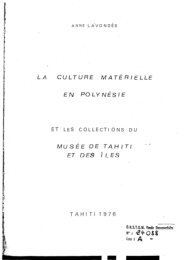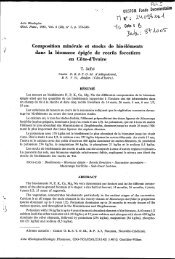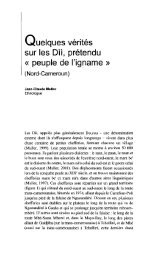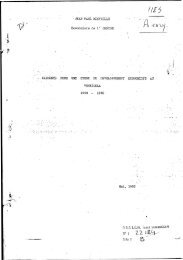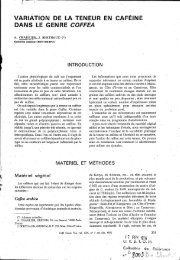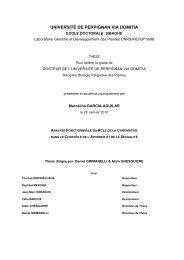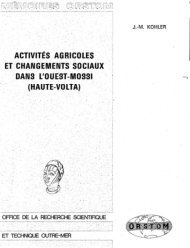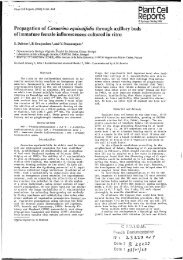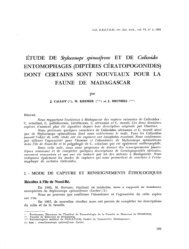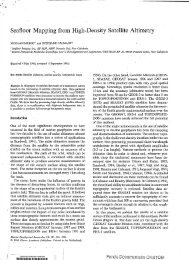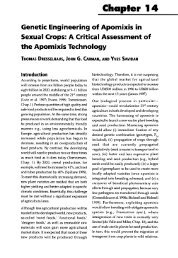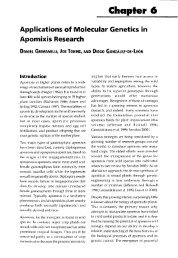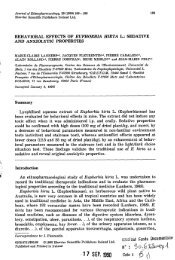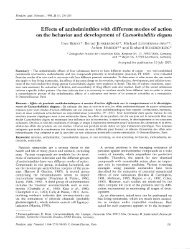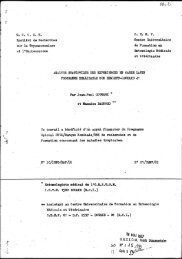A study case on coffee (Coffea arabica): Limu Coffe - IRD
A study case on coffee (Coffea arabica): Limu Coffe - IRD
A study case on coffee (Coffea arabica): Limu Coffe - IRD
Create successful ePaper yourself
Turn your PDF publications into a flip-book with our unique Google optimized e-Paper software.
- N<strong>on</strong> organic substances are not allowed to be stored at the organic farm, including<br />
n<strong>on</strong> organic fertilizers and pesticides or other toxic materials;<br />
- No littering is allowed at the organic farm area;<br />
- No <strong>coffee</strong> from n<strong>on</strong> approved plots, neighbours or relatives are allowed to be<br />
delivered or mixed in the organic <strong>coffee</strong> of the market group.<br />
- Market groups are asked to maintain soil fertility with compost from organic<br />
materials such as grass cutting and tree leaves, <strong>coffee</strong> pulp, other organically produced plant<br />
materials, animal manure;<br />
- Weed c<strong>on</strong>trol has to be d<strong>on</strong>e by mechanical methods as cutting, tilling, hand weeding<br />
or mulching;<br />
- Intercropping with other crops such as banana, enset, ginger, avocado, beans, etc… is<br />
recommended;<br />
- Native plants and shade trees existing at the site shall be maintained and where<br />
applicable shading is improved.<br />
Uni<strong>on</strong>’s president: “Market groups are the smallest farmers units producing organic<br />
<strong>coffee</strong>. The purpose of these market groups is to c<strong>on</strong>trol the organic producti<strong>on</strong>. This<br />
structure has been created by the uni<strong>on</strong> (no state recogniti<strong>on</strong>) for quality c<strong>on</strong>trol. When the<br />
campaign starts, they invite certifier’s company members then visit farmers together. This<br />
renews our c<strong>on</strong>tract, the agreement is prol<strong>on</strong>ged. During the campaign, they make<br />
inspecti<strong>on</strong>s directly to the farmers without telling uni<strong>on</strong>. When they inspect, they go to the<br />
market groups. In these market groups, farmers c<strong>on</strong>trol each other. That means they advise<br />
each other and c<strong>on</strong>trol by themselves the quality respect. There is a leader per market group.<br />
Registrati<strong>on</strong> documents in the uni<strong>on</strong>s’ Genet offices and in Addis Abeba certifier’s offices<br />
regroup these market groups. But last year we sold unwashed <strong>coffee</strong> <strong>on</strong>ly to EC ex. We<br />
wanted to export but we couldn’t. We signed a project with the Oromiya Agricultural Output<br />
Agency, planned by Oxfam GB. We had to prepare <strong>coffee</strong> with organic <strong>coffee</strong> requirements<br />
and they had to find export markets for us. An agreement was signed. Finally they didn’t find<br />
the market for us. Our <strong>coffee</strong> was blocked ten m<strong>on</strong>ths. We finally sold it to EC ex without any<br />
premium price. Now we d<strong>on</strong>’t receive m<strong>on</strong>ey from the project anymore. We use our own<br />
capital to pay farmers. We asked and obtained from Trade & Industry Ministry at regi<strong>on</strong>al<br />
level (Oromiya regi<strong>on</strong>al government) the general export licence. With a cooperative status, it<br />
was easy. Now we are planning to obtain two additi<strong>on</strong>al export licences for the specialty<br />
market:<br />
108



